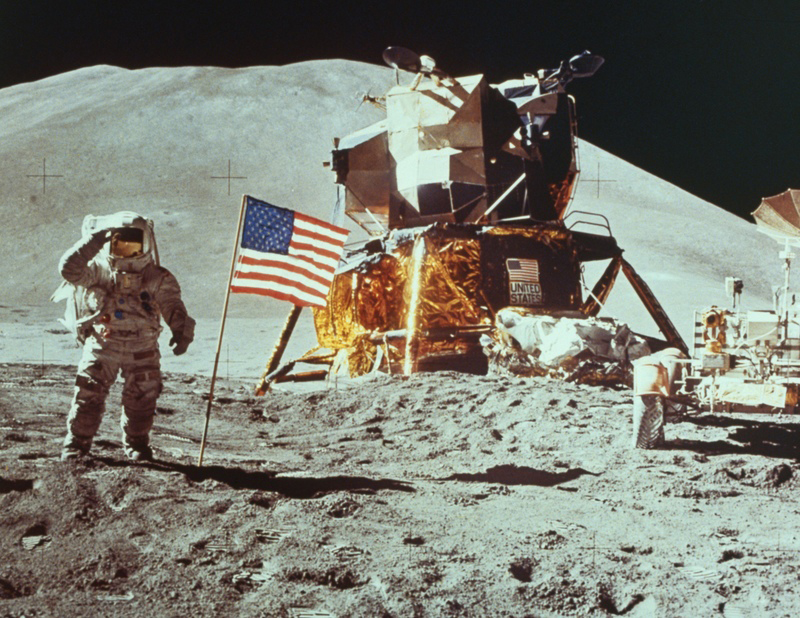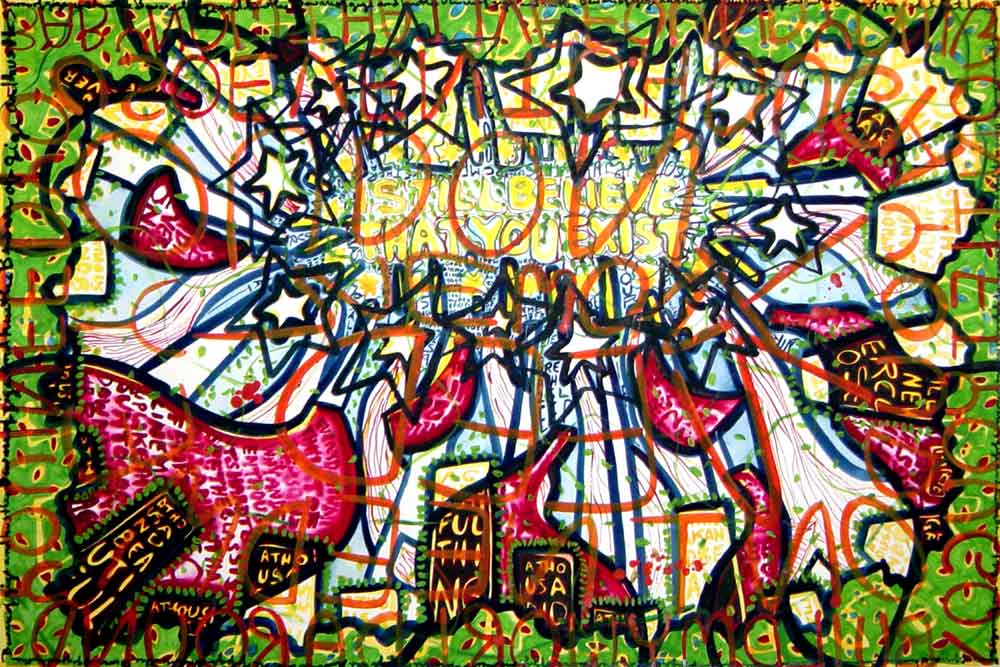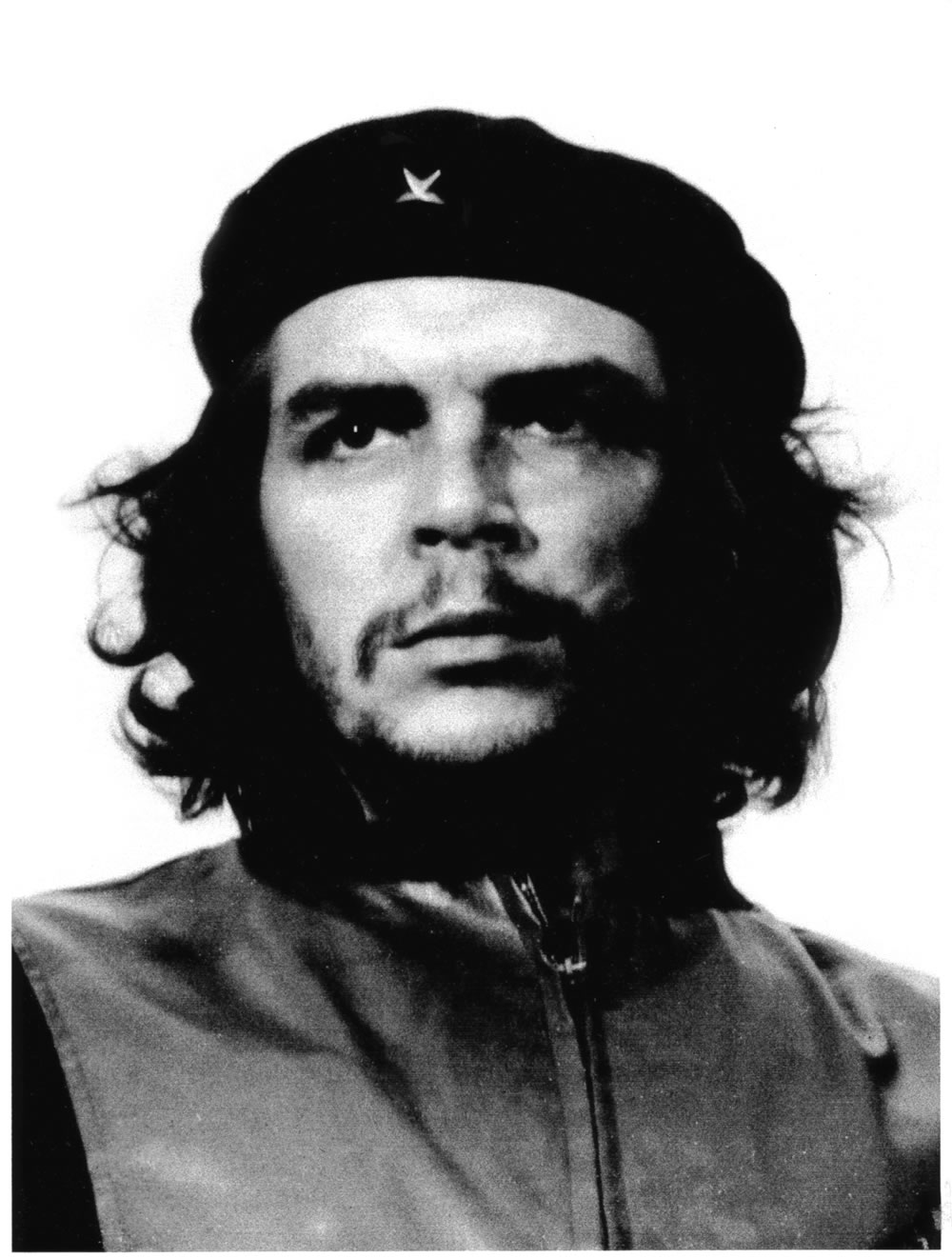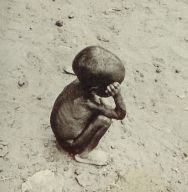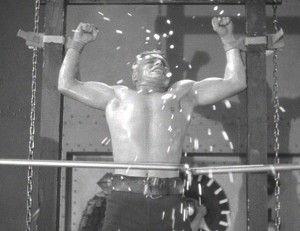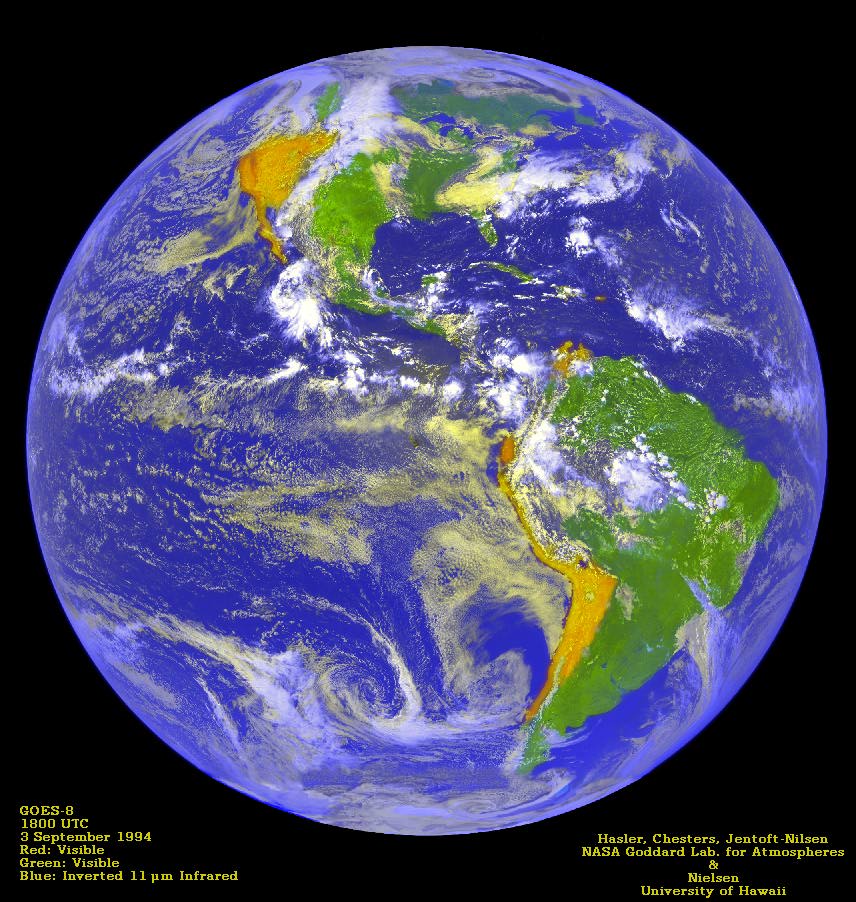|
EITHER/OR
I've never read Kierkegaard's Either/Or (although I did read Fear and Trembling and The Sickness Unto Death, when I was an undergraduate, and they made a great impression on me), but I know what it's about. To cut a 798page story short, I think Either/Or is about choosing between two ways to live. Are we better off as sensualists, satisfying our appetites? Or are we better off living ethically, "being good", and suppressing our base desires? The hard narrow road to Heaven, or the wide easy path to Hell? And which is which? In the politics of science fiction, it's easy to find the same kind of binary opposition. Should "we" be wide-eyed explorers, boldly dedicated to endless expansion and technological advance, no matter what the cost? Or should "we" be using the powers of science fiction to devise better ways of living on Earth? Progress or Utopia? Of course, whether you're a moralist, a politician, or a builder of imaginary worlds, not everybody's going to agree on which road leads to Heaven, or whether Heaven is really a nicer place than Hell. . . I don't have the secret formula for a perfect world, or a perfect way of living (though many science fiction writers, over the years, have claimed that such a formula exists). All I have to show you today is a description of the issues around futuristic Utopia versus futuristic Progress, in words and pictures; plus a little commentary. This is a science fictional Either/Or, but I'm going to start in the real world, and in real history, because that's where all the stories come from.
FIRST OPPOSITION: UTOPIA "From this place, and from this day forth
begins a new era in the history of the world, and you can all say
that you were present at its birth." Goethe.
That's General Kellerman on top of the column, waving his hat and no doubt shouting "Vive La Nation!" which was a new idea in 1792. It's irrisistible, the romance of this lonely monument, the Windmill on the Ridge! NB, if you visit now, you'll find the Windmill itself has become pretty much the main event. How it was restored, how it was moved (back?) to its present position, how the community all got together in this effort, how it was televised. They probably had a street party about it. How we all behave the same! The following day, the French voted to abolish the monarchy & thereafter things went rapidly downhill for Liberté, Egalité, Fraternité. The great Prussian writer, Goethe was present at the battle as a privileged non-combatant, in the service of his lifelong patron Grand Duke Karl August of Saxe-Weimar-Eisenach. He later claimed he'd spotted momentous significance of the engagement right there and then (though the quote on the column dates from some years later) Nevertheless, his words remain: marking a day that turned the world upside down. Maybe the world didn't quite change in an afternoon, but the French Revolution, and the American War of Independence, two "rebellions" that greatly influenced each other, really did mark a change. Henceforwad, the world would be the world of the industrial revolution, of mass-markets, mass-production, world wars. And, eventually the literate proletarian leisure class, and the cheap wood pulp paper, that made the phenomeon of genre science fiction possible. A popular, mass market art form (need I say, mainly for men?) in which these different drives, Utopia versus Progress, can be explored.
UTOPIA:THE MANIFESTO How to build the Good State The Rights of Man The Universal Declaration of Human Rights Progress that isn't shared by everybody is no
Progress at all.
The Apollo Landing, July 1969 "One Giant Leap for Mankind"
How To Reach Escape Velocity Wealth Creation, Unlimited Economic Expansion The rich ... divide with the poor the produce
of all their improvements. They are led by an invisible hand to make
nearly the same distribution of the necessaries of life which would
have been made, had the earth been divided into equal proportions
among all its inhabitants.
The second picture is of the Apollo Moon Landing, representing the fartherest point that the science fiction dream of humanity's expansion out of this world has reached, so far, on the road from Valmy. The Utopian revolutions of the eighteenth and nineteenth centuries didn't create a paradise on Earth for the masses, but they DID foster a novel conviction, especially in the New World of the USA, that blind Progress (as opposed to ethics or religion) could solve all our problems. In the twentieth century, via two World Wars, another wave of Revolution and a staggering body-count, the ferocious stand off between the USA and the Soviet Bloc (Mutually Assured Destruction) made the Space Race, a heroic, ruthless outpouring of money and resources, politically feasible- It's not very impressive, when you compare the flag, the footprints, and the sad decline from that high point to the planetary romances of early sf. It still won't be very impressive, if "we" ever manage to put a flag and some footprints on Mars. But that's okay (say the faithful). There was a knowledge gap, which "we" didn't have the tools to measure. It will be bridged, slowly and painfully. Already what we imagined we knew about our solar system and "Outer Space" has been replaced by actual data. There's nothing wrong with the science fiction dream. The dream is alive. The dream of ever upward, ever outward, benefiting everyone through the workings of that Invisible Hand. The adventure is still worth every penny, every sacrifice. It's just going to take a little longer. Hm. Let's take a closer look at where the bodies are buried.
Progress has a guilty secret:
Commentary: In the real world, Utopia and Progress have been locked in dialectical struggle since long before mass-market science fiction was born. Progress (closely associated with the US doctrine of Manifest Destiny, a phrase that seems to have been invented by a newspaper editor, around 1845) promised fabulous rewards, a two-car garage for every Welfare Capitalist: but it demanded casualties. The Wilderness had to be tamed, Native Americans and earlier European settlers had to be displaced, so that Civilisation could spread. In the Old World, millions on millions of workers and their dependents had to live and die in squalor, so that natural resources could be extracted, and goods could be produced cheaply. Millions on millions of colonised Africans and Asians had to suffer too. This awful cost in human misery had to be ignored, denied or tacitly accepted, by the industrialists and the nomenklatura, the interested classes. The rest just had to wait for the Invisible Hand to pick them out of the casualty line. Which never seemed to get any shorter. Political Utopians meanwhile hauled on the brakes, insisting on reforms, lobbying their governments, writing tracts and pamphlets. Stubbornly expanding their sphere, but generally without challenging the self-evident value of Progress. Thing went on much the same, through the supposedly Utopian revolution in Russia in 1917, the formation of the Soviet Bloc, and right up until the collapse of the latest Old World Order, after World War Two and the dismantling of Europe's colonial empires. Utopians kept on making gains, siphoning off the some of the wealth created by Progress: improving living standards, education, sanitation, health care, access to art and culture, for the casualties. Insisting that human rights (when that term had replaced "the Rights Of Man") aren't a lottery prize for the lucky few. SECOND OPPOSITION: MANIFEST DESTINY "What The People Wanted Was The Future"
"The Thirties dreamed white marble and slipstream chrome, immortal crystal and burnished bronze, but the rockets on the covers of the Gernsback pulps had fallen on London in the dead of night, screaming.. ." William Gibson, The Gernsback Continuum. For the science fiction of the twenties and thirties, the popular form that has given our genre its identity, there was no conflict. Progress and Utopia were identical. Progress would produce, just naturally, through technological advances alone, the perfect, streamlined future that made William Gibson shudder, as he describes in "The Gernsback Continuum" (1981). In that significant little story, Gibson points out that Tsiolkovski, visionary founder of modern rocketry, imagined travelling to other planets -but the rockets were actually developed by the military, first in Nazi Germany and then (after the USA had exported the Reich's rocket scientists) by the "good guys", as delivery systems for megadeath. It was Nazi slave camp technology, and Nazi high tech weapons of terror, as much as Cold War rivalry, that gave us the Moon Landings. For many fans and many sf writers, that was still okay. Progress demands casualties, it's horrible, but the rewards are worth the price. . . Besidese, to the renowned US sf writers recruited as advisers in Ronald Reagan's Star Wars initiative, the Cold War was self-evidently the good guys versus the bad guys. They were thrilled by the Big Science, proud to be attached to the megadeath business. For many fans and writers, it's still okay that science fiction has close ties with the military. In fact, let's be honest, maybe it has to be that way. "It can be argued that militarism is the only justified background and motive force for science fiction, at least for 'science fiction' as the term is understood by the general public. Space exploration serves military goals, only superpower military budgets are elastic enough to embrace the giant-scale technologies that must form the launchpad of a space-faring future. If other giants, supra-national corporations, become massive enough to support such huge enterprises then they must inevitably take on the military character of 'benign totalitariansism': where an army of employes eats the company's food, lives in regimented housing, sends their children to Company School, wears company uniform, shops with company currency at the company store. It could be said that the future must be military, if it is to be anything like a science fiction future at all. The social mores of a command economy (take your issued clothing, live here, go there, you don't need money, you have assigned housing and a coupon for the cafeteria) are natural to a newly-colonised galactic empire.. ." [that was me quoting myself, from an article I wrote for an Italian journal called "Fictions". You can read the whole thing on this website if you like, it's called "Wild Hearts In Uniform". You can read about "Star Wars and the sf writers" in Greg Bear's New Legends, in a memoir by Gregory Benford. Who worked for the original Dr Strangelove (Edward Teller), as you probably know] But here's the problem. The Cold War, the struggle between East and West that dominated the world in science fiction's glory days, was supposed to be an opposition between the freedom of the individual and the regimented horror of the totalitarian state. However, William Gibson and I are not the only sf persons to have noticed that the operation of Manifest Destiny is oddly similar to Joe Stalin's doctrine of Socialist Realism. Nothing matters but the cause. The suffering present is unimportant, the perfect future is all that matters. Free will is an illusion. Everything is predictable, if only you have enough data. There'll come a time when nothing will be left to chance, and nobody will ever step out of line… When I read Isaac Asimov's original Foundation trilogy, a couple of decades after the books were written, I was mystified and slightly repelled. I couldn't see what was attractive or desirable about Hari Seldon's "psychohistory". Later, when I'd picked up the term "Fordism" (from Gramsci's prison writing), I realised what had given me chills. The production line factories of Fordism were aiming for the same blank, machine-finished future, as the ruinous madness of Stalinist Russia. Arguably, Fordism was the original, Stalinism a faithful copy: the USA just had the advantage of starting from a higher baseline. The desired result, taking the project to its logical conclusion, was exactly the same. No "freedom", no "democracy", just hives of well-fed, well-tended, disenfranchised consumers, in a global totalitarian state -with chrome and fins, to distinguish it from those losers with the hammer and the sickle Asimov is as mainstream as you can get, by anybody's reckoning the direct descendent of H G Wells. The project of creating an utterly predictable future society is science fiction doing what sf does best: taking a dominant idea of the real world, applying it and showing us the "if this goes on" result. This is the real problem Gibson had with the Gernsback Continuum. And it's not okay, not for the most devout believer in Progress. That's not a costly yet glorious achievement. That's the average sf fan's worst nightmare polished, sanitised, and called a beautiful dream. The Progress model starts to look unappealing. We'd better have another look at Utopia.
SECOND OPPOSITION: THE SPIRIT OF THE BEEHIVE
Joanna Russ, The Female Man 1975 Commentary: In the nineteenth century, and beyond, while real world Utopians were happy to change the Progress system from within (keeping the modern conveniences, putting firm limits on the the profit motive), Utopian fiction tended to be openly anti-Progress, anti-Industrial: harking back to an idealised Mediaeval world. In William Morris's News From Nowhere, 1890, socialism triumphant is a poignant, pastoral dream. (They had a point, mind you. I'm old enough to remember what it's like to live under a pall of coal smoke, I live with the permanent damage it did to my lungs: I know how it feels to be (eg) a casualty of the current Chinese miracle). Utopian writing was so different from technophile adventure fantasy, it wasn't called Science Fiction at all. Utopians painted word-pictures, they didn't tell stories. They lectured, they didn't entertain. Even the rare technophile Utopians, like Olaf Stapledon, had the same problem. Their fiction was static, monumental. It's no accident that the only two "Designer World" political visions that made a popular impact in the twentieth century are Dystopian: Aldous Huxley's Brave New World, and George Orwell's Nineteen Eighty Four. They may be horror stories, but at least it's not all talk. At least something happens. Then came the Sixties, and everything changed. In the heartland of sf there was the anti-War Movement, there was the Civil Rights Movement, there was a New Wave of Feminism. Utopian writing discovered technology, and better than that. . . the plot! And then they found themselves in trouble. I chose the quotation on the slide because the idea of this person (naked, I think) strolling around the equator strikes me as a really funny and concise image of the perfect world. Nobody wants your emerald, nobody minds that you haven't got any clothes on, you have nothing to fear. Nobody's going to bother you in any way. . . The picture is from a collaborative feminist art project I found on the net. It just appealed to me: it seems to match the spirit of the quote Whileaway is my favourite sf Utopia, because it's not anti-tech, far from it, and yet the Good Life hasn't been bought at the price of destroying the planet's biosphere. It's a Green world supported by very high tech, and the inhabitants are far from being tame units of production in a Command Economy. But Whileaway is transitional. It's mostly word pictures, satirical or idyllic. It's only for the few, and it doesn't engage with the problem of how we get there from here… . . . except to renounce violence. But that's a paradox in the real world, and Joanna Russ knew it, as you can tell from her other writing. There are four versions of the same woman in this book, it's a multiverse story. They meet, and visit each other's worlds; it's done with probability mechanics. When the blissfully Utopian version is given that choice, and renounces violence, it's fairly explicit she's choosing to renounce her own existence.
SECOND OPPOSITION: THE SPIRIT OF THE BEEHIVE Utopia has a guilty secret too "you will die with a clenched fist and a
tense jaw, the epitome of hatred and struggle, because you are not
a symbol (some inanimate example) but a genuine member of the society
to be destroyed; the spirit of the beehive speaks through your mouth
and motivates your actions."
The Motor Cycle Diaries date from 1950, the year before Asimov's early Foundation stories were published in novel form, oddly enough. It seems Guevara never intended for them to be published, but when you're an icon of the revolution, you don't have posthumous control over your writings. Anyway, Che Guevara was a twenty three year old medical student. He went for a ride around Latin America, and saw at first hand how much injustice there was in his world; how many different diseases were really just one disease -poverty. At the end of the diaries there's a mysterious, "prophetic" afterword, where Ché meets a veteran Latin American Communist, and the old man tells him how he's going to die… With a gun in his hand, behaving exactly like the bad guys; trying to impose his gentle vision of the Perfect World by murderous violence. And that's the problem. People used to say that Utopian fiction writers had to invent an enemy, a threat from the outside, or they had nothing interesting to say. Since the Nineteen Sixties, when they started to engage with the real history around them, sf Utopians have known sin. There is no imaginary exterior threat. Utopia itself brings on the violence. There were quite a few variants on this theme, and the scenario is still being explored. Ursula Le Guin's The Word For World Is Forest, (1968-1976) is typical. The story goes like this: a beautiful, idyllic world has been invaded by the evil planet-rapists, Wealth Creation's ruthless hit squad. The bad guys are going to tear down the forests, saw the tops off the mountains, poison the seas, and herd the peacable natives into camps, where they'll die and cease to be an obstacle to Progress. The gentle souls, to whom "war" was inconcievable, have to learn to fight back. They embrace Armed Struggle, and they win. In the last, definitive scene, the hero of the Resistance tells the sad truth. There's no going back. Once you pick up a weapon, it doesn't matter how much of a hero you are, doesn't matter how many teeshirts you adorn, you've lost everything that ever mattered to you. You've become your enemy. We speak with the spirit of the beehive. Revolutionaries have been created by the dominant society. The culture that oppresses the masses and rapes the planet speaks through them, and guides their actions. So there you have it. This is what science fiction does. Take the Progress model, stir in the conditions necessary to achieve the objective, see what happens, and you get the Totalitarian State, the Progress party's worst nightmare. Take the idea of Utopia, give it the equivalent treatment and you get Organised Violence, Utopia's worst nightmare. It's tricky, isn't it.
THIRD OPPOSITION: HUNGER
It is capitalism that kills tens of millions of
people every year and condemns hundreds of millions more to war, hunger,
disease, and fascist dictatorship.
Wealth Creation, the great engine of Progress, is still chewing up human lives, the same as ever. Actually, it's become more ambitious. It's chewing up the entire biosphere nowadays.
Commentary: Progress does come at a price. Maybe "we" have to pay that horrific price, if "we" are ever going to achieve the Great Escape that science fiction dreams of. Maybe this is the way it happens. A race against time, a damned near-run thing, in which the Totalitarian World State is founded on megadeath, environmental disaster and fascist regimentation. We exhaust the biosphere, but the lucky few break free. Raptured into the heavens as pure data, or lining up to buy incredibly expensive tickets on Richard Branson's starships. The rest of us suffer and die (like that little child in the photo), along with every other living thing. And it doesn't matter. A thousand years from now, beautiful people will be enjoying immortality in an unearthly paradise, and it won't make any sense for them to regret the past- No more than it makes sense for me to break my heart over the extinction of the dinosaurs, or the firebombing of Dresden. There's another Ursula LeGuin Utopian story, called "The Ones Who Walk Away From Omelas". It's about a wonderful city state (it's a city state, not a country or a planet, but it's clearly meant to be the USA, land of the free) where perfect equality reigns, where everybody is free to fullfil their whole potential, and nobody is poor, or sick, or wicked. But every girl and every boy, growing up brave and beautiful in this perfect world, has to face a test. There comes a day when each of them is taken to a cell deep beneath the beautiful city's streets, and shown a filthy, hungry crying child, chained to the wall. They are told, she stays there, a bag of bones crouched in her own filth, or we lose everything. Do you want to set her free? "The Ones Who Walk Away" are the few, the very few, who decide to leave their earthly paradise, rather than accept this devil's bargain. The strange thing about that story is that Le Guin gives the reader
no guidance. Are we to sympathise with the child? Or the few Who Walk
Away (they don't rescue the child, they just leave). Or is the tragedy
with the many who don't walk? Who think hard about it, and decide
they can live with the utter horror that's buried in the heart of
their happiness.
THIRD OPPOSITION: YEAR ZERO
Tourist photo from the Killing Fields Museum, Cambodia [Pol Pot] said that he knows that many people in the country hate him and think he's responsible for the killings. He said that he knows many people died. When he said this he nearly broke down and cried. He said he must accept responsibility because the line was too far to the left, and because he didn't keep proper track of what was going on. He said he was like the master in a house he didn't know what the kids were up to, and that he trusted people too much… Commentary: That's an exhibit from the Killing Fields Museum, the second most popular tourist attraction in Cambodia; after Angkor Wat. A very strange idea, that Museum. I've never been there (my son has). I had a chance to visit Auschwitz once, memorial to another uncompromising Utopian dream: I passed up on that, too… It's easy to take issue with Anonymous Fan. What do you mean, "if we make it". Who's "we"? "Make it" in what sense? What about all the other members of this biosphere, all of them related to us? There is only one species of life. So far, there is only one known species of life in the entire universe. It's a little more difficult, but unpleasantly necessary, to have some fellow feeling with Pol Pot, whose apology for his allegedly Socialist Year Zero policy has a sinister resemblance to the hide-my-eyes attitude of Libertarian and Right Wing sf fans and writers, through the decades. . . We didn't understand. We imagined for the best. We didn't mean all those people to starve. We didn't mean to sanction the death of the oceans, the destruction of the fertility of the soil. We've been poorly advised… You want a perfect world? You want the totally predictable society, controlled by a computer the size of Manhattan? You want the entire mass of humanity turned into a psychic Dyson Sphere, all for one, one for all? This is what perfection looks like (the heap of skulls). And this is what it costs (the Hunger child)… The future always belongs to other people. Nobody here gets out alive. That's the way it is, and if you don't like it, perhaps you should resign yourself to the old-fashioned version of the Progress will take us to Utopia model. Spend your life trying to get better at being, and looking forward to the Great Escape out of the body of this death. Into the Mighty Void.Maybe deep down, that's what's going on. Very old dreams, that change to suit the times, but secretly remain the same- "What else can it be -that other world of spiritually etiolated lifestyles, reduced surfaces: cleanliness, order, protien pills for food? Where did the first crude practitioners of the sf genre conceive these images of white garbed citizens thronging the shining corridors? There is only one other world, Johnny, one theatre of eternal mysteries and unreachable solutions. We go there when we die. . ." [Me quoting myself again, from a story called "Identifying the Object". Other sources discussing the secretly supernatural promises of sf are too numerous to mention, so seek them out for yourselves]. FOURTH OPPOSITION: EITHER/OR Commentary: I took up the suggestion that I should talk about the politics in science fiction, and since I'm a Techno-Green Utopian myself -like Joanna Russ- I thought I'd present some images of the way science fiction's Leftfield thinking about the Good State intersects with the technophile, Libertarian and Right Wing mainstream. I chose the title Either/Or purely in honour of Søren Kierkegaard, but I've discovered that moral philosophy is more relevant than I realised. Just as in the original Either/Or this is a moral issue, and it looks easy to resolve, but it isn't. Frankly, I have to agree with the PLP. If the unregulated free market was going to create Utopian conditions, just naturally, we'd have the proof by now. Nobody can claim there's insufficient data. This experiment has been running for upwards of 50,000 years, in the same lab, same parameters. You'll have to ask Charles (Stross) how many seconds that makes. Unfortunately,, Utopian interventions have an equally dirty record, whenever they're adopted on the same scale as the dominant Progress model. It appears that small is beautiful, for Utopia. Small increments of reform, small improvements in a design for living. That's probably why my favourite sf Utopias are not the static, complete Perfect World type, but part of another story, as in The Female Man, or Marge Piercy's Woman On The Edge Of Time, or Joan Slonziweski's A Door Into Ocean. Accepting small gains; trying to spread peacefully, like a benign mutation spreading through a population. Always remembering that the battle for hearts and minds is doomed, the moment the Utopians pick up a weapon. FOURTH OPPOSITION: FLASH IN CHAINS
Life's a struggle, war's a metaphor. Progress is what happens while you're fighting the Evil Empire But I don't want to end on a bum note. All is not lost. In science
fiction at least, Progress has been rescued from blindness by Progress
itself. Scientific advances have made the world a lot more complicated
than it used to be, when science fiction was young. Totally predictable
societies controlled by monster computers seem neither desirable nor
likely, when we understand that our own bodies, our own cells, are
immeasurably complex, intricate and borderline chaotic societies.
Besides, there's always another Evil Empire to defeat, another adventure
fantasy to keep the deadly perfection of the end away from the beginning.
So here's Flash, wonderfully played by Buster Crabbe (The Flash Gordon
serials played on UK tv when I was five, and were my first introduction
to science fiction); just to remind you that most sf isn't serious.
It's about excitement. Make-Believe. A child's game of good guys versus
bad guys, in a fairground imitation of the future FOURTH OPPOSITION: KALLOCAIN
"Organization?" she said. "We don't
want an organization. What is organic needs no organization. You build
from without, we build from within. You use yourselves as building
stones and fall apart outside and in. We are built up from the inside
like a tree, and bridges grow between us that are not of dead materials
and dead force. From us life itself issues. In you whatever is lifeless
enters."
Under the drug that infallibly reveals the truth, the answer to all these questions, in every case, is I can't tell you… Freedom of thought, personal liberty, is the core of the Good State, but it's something that can't be defined. Can't be measured, can't be bought, can't be bribed. That's how you know.
|
||
